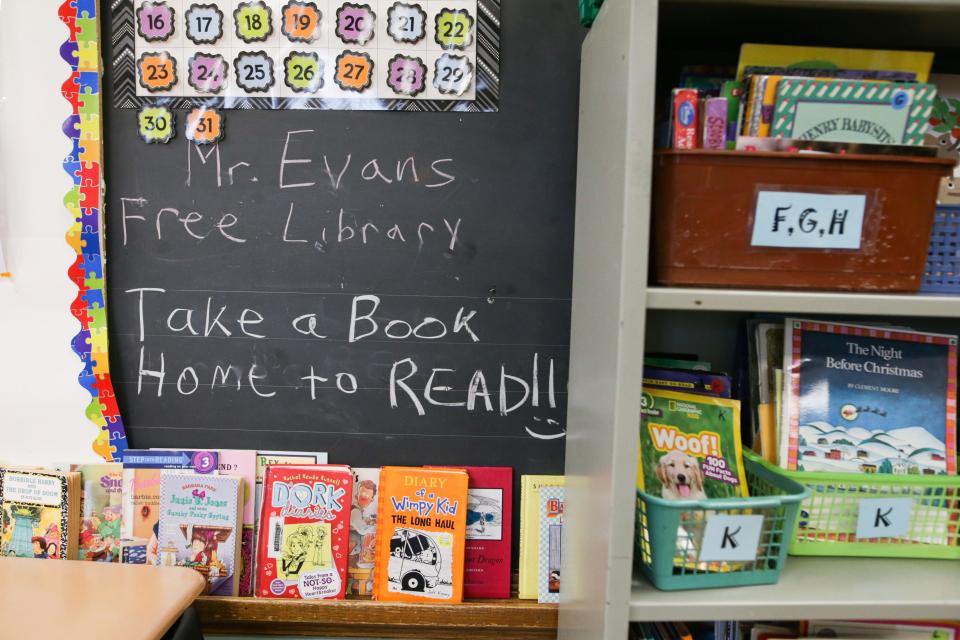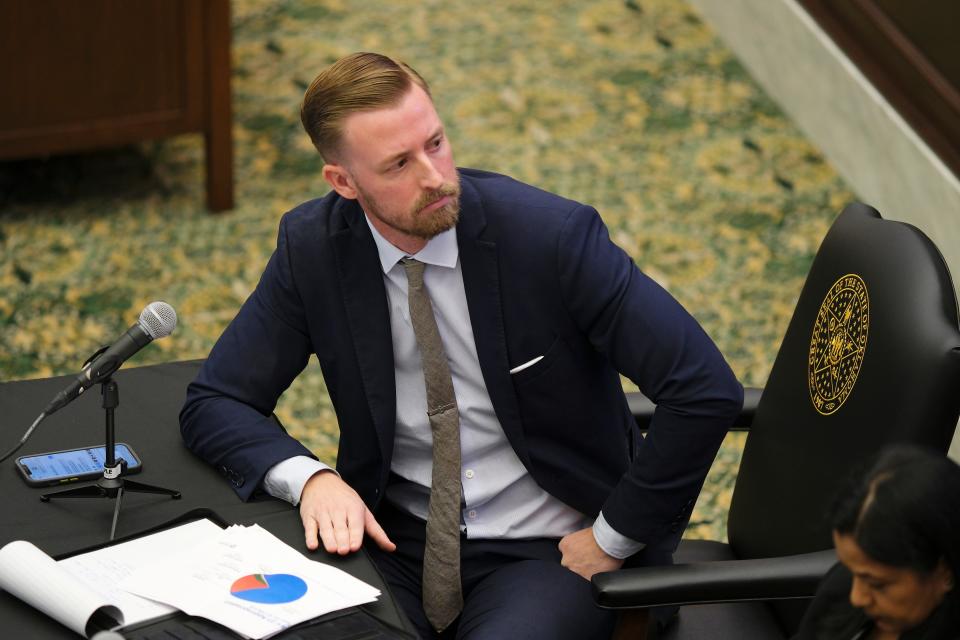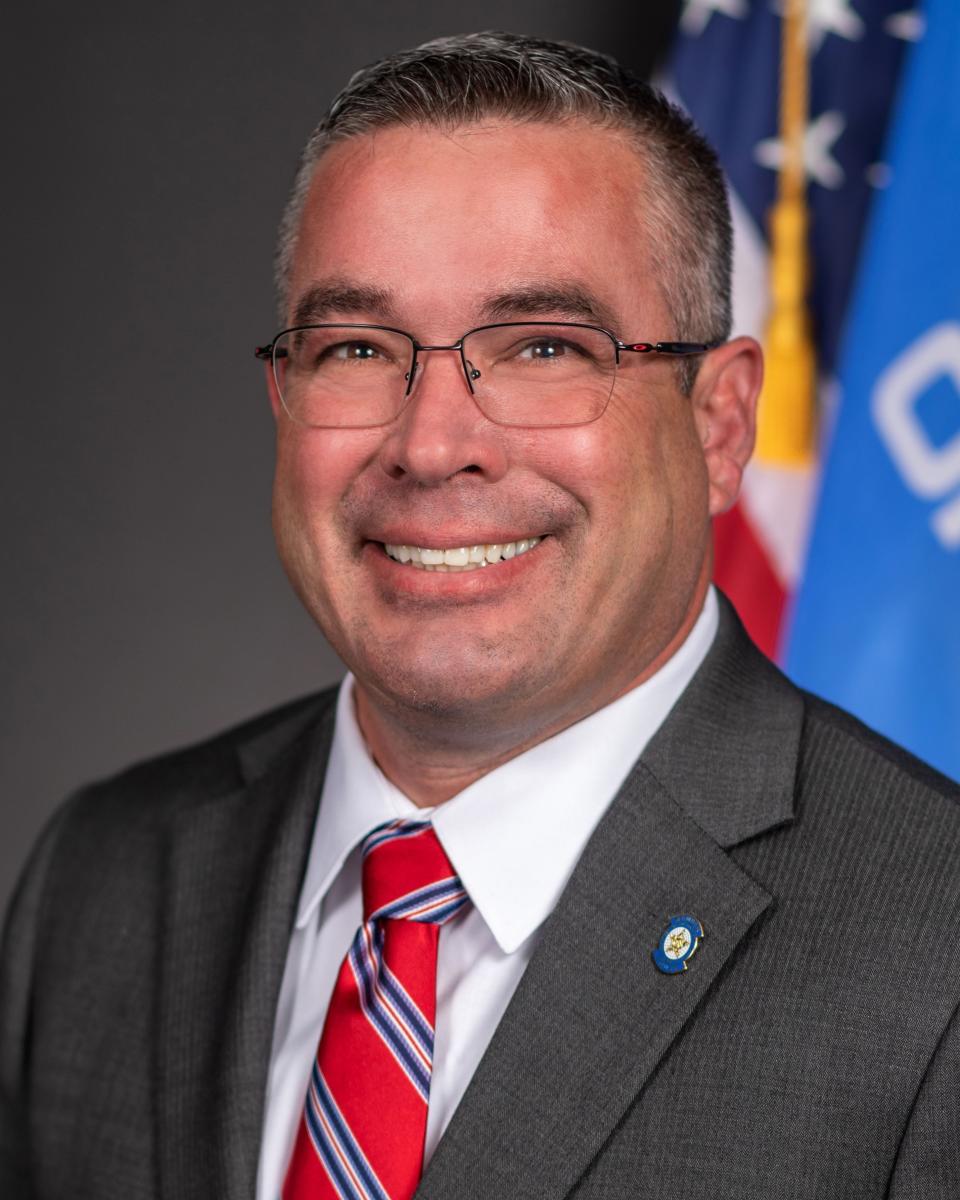What are 'information literacy standards' and why does Ryan Walters want to change them?

When state schools Superintendent Ryan Walters declared last month he is seeking to change what he called Oklahoma’s “woke” information literacy standards, more than a few people wondered what exactly information literacy standards are and how they are developed.
Walters’ cultural crusade has spotlighted a topic that, while it might be misunderstood by those not familiar with education jargon, is a key measurement of how students learn, particularly since technological advances have given today's students quick and convenient access to more information than previous generations ever enjoyed.
Dana Belcher, the director of the Linscheid Library at East Central University in Ada and the current president of the Oklahoma Library Association, said information literacy is a traditional term for the standards taught by a certified school librarian. Information literacy standards also are referred to as media or digital literacy, Belcher said.
“These standards reflect skills concerning how to access, evaluate, create with and ethically share information,” Belcher said. “A more accurate term today is ‘school library learner standards’ that focus on several shared foundations of learning beyond information literacy: inquiring, including a variety of perspectives to gain understanding, curating information resources, collaborating with others to solve problems, ethically engaging with information, and exploring and innovating. These are life skills that help our students become college and career ready, as well as informed citizens.”

Certified school librarians — who are required to have earned at least a master’s degree — assess information literacy standards while teaching, and many school library standards are assessed as part of subject-area state assessments, including English Language Arts, Belcher said.
Since the 1920s, the American Library Association or the American Association of School Librarians (one of the ALA’s divisions) have worked to create and update information literacy standards and those standards commonly are used by state education departments across the U.S. The AASL’s most recent edition of school library standards was released in 2018 after several years of research by school librarians from across the country.In Oklahoma, the OLA and its division, Oklahoma School Librarians, traditionally have worked with the Oklahoma State Department of Education to lead professional development of state standards, with the last update coming in 2007, when Democrat Sandy Garrett was entering the last of her five terms as state schools superintendent. It’s those standards Walters, a Republican, called “woke.”
Why Ryan Walters says he wants to change the current information literacy standards
In his announcement, Walters said the current standards constituted "taxpayer-funded, woke indoctrination of our children in Oklahoma. Without providing examples, he criticized the association for fighting against "filtering of internet pornography in libraries" and attacking "parents who just want libraries to protect children and reflect their communities."
Walters has a history of disagreement with the ALA. In April, Walters sent state lawmakers a list of 190 books focused on LGBTQ+ themes that he found offensive — books that appeared on the ALA’s Rainbow Book List, which promotes stories that represent experiences of LGBTQ+ youths.
Walters has referred to his rules proposal as “the first such rejection of ALA’s activist, left-wing standards to be adopted by a public education system.” It said the proposed rules take a “tiered approach, aligning skills with appropriate grade levels.”

The news release announcing Walters’ proposal also said “the focus of the new standards would be solely on skills, which encompass the inquiry process while incorporating modern elements like artificial intelligence.”
What to know about Ryan Walters' proposed new standards
The proposed rules include sections covering prekindergarten through second grade, third grade through fifth grades, sixth through eighth grades and ninth through 12th grades. Each section has four topics — “Question and Plan,” “Research and Explore,” “Collect and Organize” and “Share and Reflect,” with multiple objectives under each topic.
According to the draft document, the proposed new rules were developed using “Ohio’s Library Guidelines for Learners” from the Ohio Department of Education and “Oklahoma Academic Standards for English Language Arts,” developed in 2021.
Walters said the new standards he was proposing "will help ensure our kids have the tools they need to make sound decisions in the ever-evolving information age. Oklahoma will be a leader in preparing our students for the digital future.”Not long after Walters’ announcement, state Rep. Chris Banning, R-Bixby, released a statement supporting Walters and also criticizing the ALA. Like Walters, Banning didn't explain specifically how the news standards would differ from the old and why they would be an improvement.

"I commend Superintendent Walters for rejecting the American Library Association standards,” Banning said. “In my experience with the Superintendent, I have found him to be transparent and forthcoming with information, and we've had a great working relationship. Walters was sworn into office a mere 11 months ago. He is actively working to enhance our education system, addressing long-standing challenges that desperately need improvement.”
Why should parents care about the change? Belcher said they should want their children to be able to access information and evaluate it for accuracy and validity. Citing a study from the Stanford Graduate School of Education, Belcher said researchers found students often have trouble differentiating between sponsored content and news reports.
More than ever, the study said, "information floods young people’s smartphones, tablets, and computers."
“The same study also found students have trouble determining political bias in their information sources,” Belcher said. “If we want our children to be active participants in our democracy, then we need strong, research-based school library standards to be taught in our schools. Parents should expect information literacy standards to be just as robust and timely as other content areas,” such as science, social studies and English Language Arts.
The new standards are posted on the state Education Department website. Before the proposed new rules could take effect, they would have to go through a public-comment period (which runs through Jan. 17) and then receive approval by the state Board of Education, state Legislature and governor.
In a statement issued the day of Walters’ announcement, the ALA said it “remains focused on ensuring that our current information literacy standards meet academic rigor and that we continue to strive to make Oklahoma a top 10 state in literacy” and that it looks forward “to reviewing the proposed standards and working collectively with Superintendent Walters and legislative leadership to ensure that our children have a world-class education.”
This article originally appeared on Oklahoman: Why Ryan Walters wants Oklahoma information literacy standards changes

